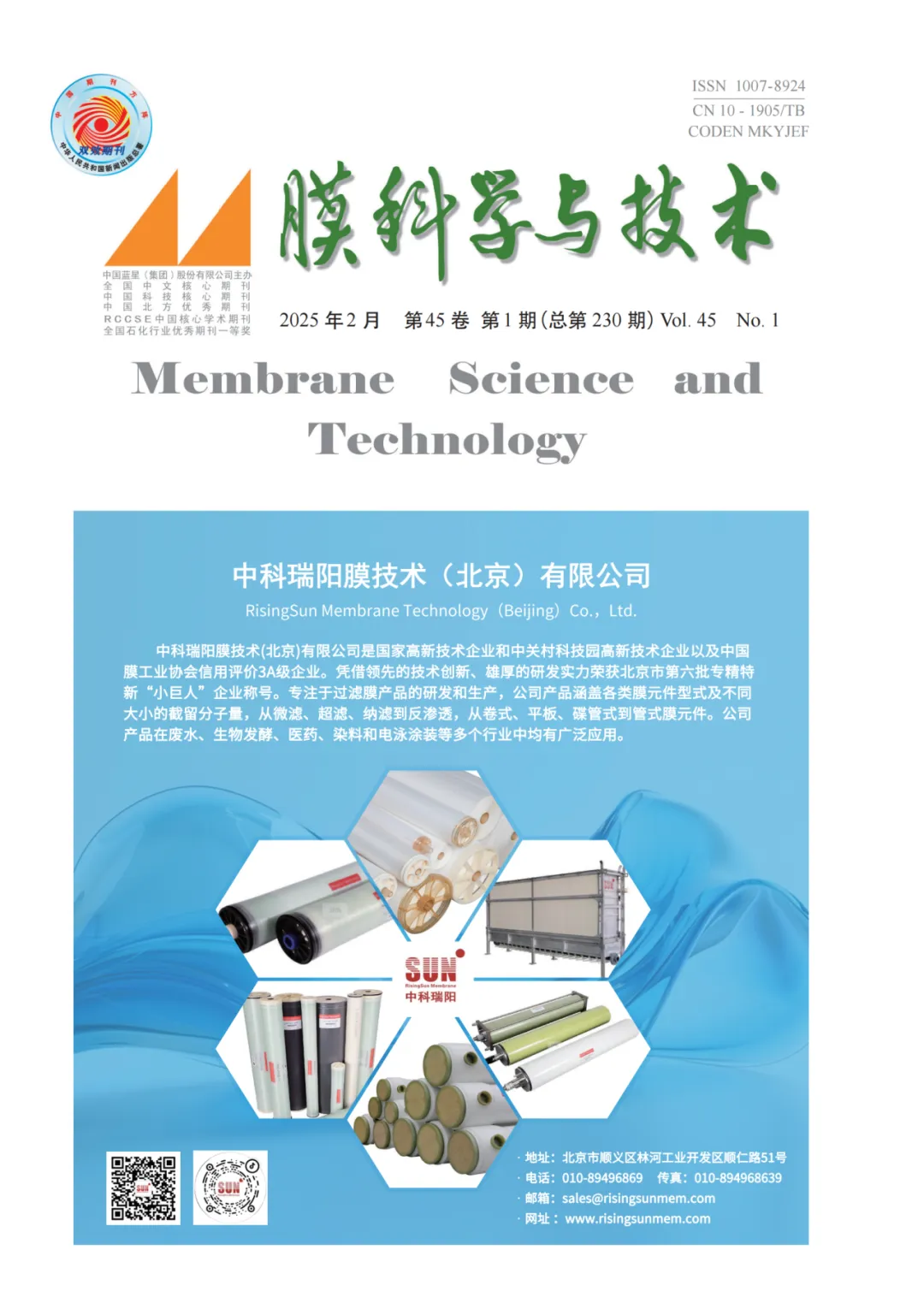Competent Organization:
China National BlueStar(Group)Co.,Ltd
Host Organization:
China National BlueStar(Group)Co.,Ltd
Editor-in-chief: ZHENG Genjiang
ISSN 1007-8924 CN 10-1905/TB
Address:
Bluestar Building, No. 19 Beisanhuan Road (E), Chaoyang District, Beijing, China
Postal code: 100029
Telephone: 010-64426130
Post issue number: 54-40
Price: RMB 30 / issue
Email: mkxyjs@163.com
Web: http://www.mkxyjs.com
MST Journal Wechat

GCJC Chinese Science Citation Database(CSCD) Research Center for Chinese Science Evaluation(RCCSE) Source Journal for Chinese Scientific and Technical Papers and Citations Chemical Abstract Service (CAS)(USA) Japan Science&Technology Corporation (JST) (JPN) China National Knowledge Internet(CNKI) National Library T2 Journals of High Quality Sci-tech Journals Classification Catalog in Chemical Industry Field Wanfang Data VIP Database
Ethics Statement
Membrane Science and Technology is committed to meeting and upholding standard ethical behavior at all stages of the publication process. We follow the requirements and guidelines given by the Committee on Publication Ethics (COPE) and strictly in order to meet these standards. The journal Membrane Science and Technology firmly rejects academic misconduct.The following issues are highlighted for authors, editors and reviewers.
Authors' responsibilities
1. To confirm/assert that the manuscript being submitted is not under consideration for publication elsewhere.
2. To confirm that all the work in the submitted manuscript is original (no plagiarism), and to acknowledge and cite any content reproduced from other sources. To obtain permission to reproduce any content from other sources.
Important note: the journal will use software to screen for plagiarism.
3. No data should be fabricated or manipulated (including images) in order to fit the conclusion/ hypothesis.
4. To maintain accurate records of data associated with their submitted manuscript, and to supply or provide access to such data on reasonable request.
5. To ensure that any studies involving human and/or animal subjects conform to national, local and institutional laws and requirements; and to confirm that approval has been sought and obtained where appropriate. Authors should obtain clear, explicit permission from human subjects and always respect their privacy.
6. Consent to submit must be received from all co-authors before the work is finally submitted; and the corresponding author is responsible for ensuring that this agreement has been reached beforehand.
7. Authors whose names appear on the submission have all made sufficient contributions to the scientific work and therefore share collective responsibility and accountability for the results.
Reviewers' responsibilities
1. Reviewers are expected to contribute to the decision-making process (whether to accept or decline an article) and assist in improving the quality of the papers to be published, in an objective and timely manner.
2. Manuscripts under review must be treated as confidential documents. Reviewers should not retain and/or copy the manuscripts or discuss them with others.
3. Any relevancy or overlaps between published papers and the manuscript under consideration should be raised to editors.
4. Reviewers should not consider manuscripts with conflicts of interest (financial, institutional, competitive or collaborative), or other relationships with any of the authors, companies, and/or institutions connected to the manuscripts.
Editors' responsibilities
1. To handle submissions in a balanced, objective and fair way, regardless of the gender, religious or political beliefs, ethnic or geographical origin of the authors, so that articles are considered and accepted solely on their academic merit.
2. To proceed with reason when complaints of an ethical or conflictual nature arise. To give authors a reasonable opportunity to respond to any complaints. All complaints should be investigated no matter when the original publication was approved. Any documentation associated with any such complaints should be retained.
《膜科学与技术》编辑部 Address: Bluestar building, 19 east beisanhuan road, chaoyang district, Beijing; 100029 Postal code; Telephone:010-80492417/010-80485372; Fax:010-80485372 ; Email:mkxyjs@163.com
京公网安备11011302000819号

